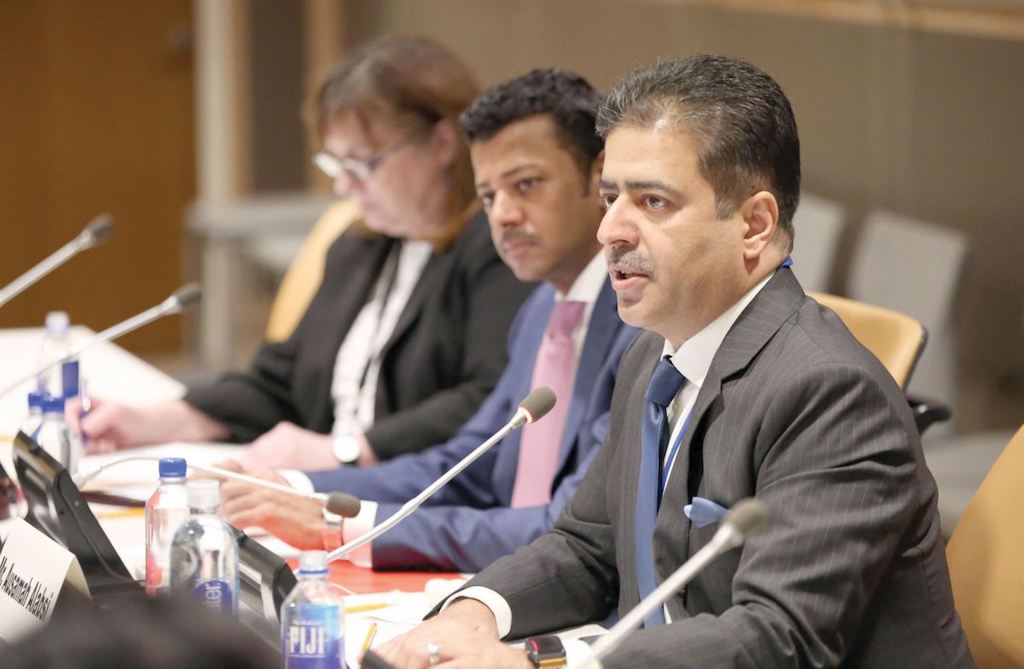New York, Feb. 24 (BNA): The Kingdom of Bahrain has participated in the first round of negotiations on the Global Compact for Safe, Orderly and Regular Migration, organised by the United Nations (UN) at its headquarters here.
On the side-lines of the first round of negotiations, the Kingdom organised a side forum in cooperation with the International Organisation for Migration (IOM).
All delegations to the negotiations, all permanent delegations to the UN and its organisations and agencies, as well as civil society organisations, were invited to the forum.
During the forum, the Bahraini delegation, represented by the CEO of the Labour Market Regulatory Authority (LMRA), Ausamah Abdulla Al Absi, presented a paper on the LMRA and its pioneering initiatives. These initiatives include the Flexible Work Permit (Flexi Permit) – a ground-breaking new programme in the region designed to boost the Kingdom’s private sector while ensuring concrete protections for expatriate workers in the Kingdom.
The 120-minute session featured statements by a team of experts and a group discussion, followed by questions and answers.
Speaking on the occasion, the LMRA’s CEO highlighted Bahrain’s commitment to international best practices that facilitate opportunities for businesses and workers in equal measure.
The CEO noted that the international community had given its widespread support for a range of LMRA initiatives. He added that the Flexi Permit, the latest of these initiatives, had been adopted as a best practice example of effective management of migrant labour markets at the UN Economic and Social Commission for Western Asia (ESCWA), as well as being included in the final report for the preparatory meeting of the Intergovernmental Conference to adopt the Global Compact for Safe, Orderly and Regular Migration, to be hosted by Mexico.
The CEO added that the Executive Secretary of the UN Economic and Social Commission for Asia and the Pacific (ESCAP) had invited Bahrain to make a presentation on the Flexi Permit at the recent ESCP meeting in Thailand in late 2017, and the LMRA had been invited to attend an expanded meeting of the “Colombo Process” for labour sending countries in March to explain and discuss the initiative.
The CEO stressed that recognition of the Flexi Permit reflects Bahrain’s long-standing commitment to increasing its international and regional competitiveness by strengthening the role of the private sector.
He added that the Flexi Permit enables the Kingdom to capitalise on available opportunities at low-cost and within existing legal frameworks, all while improving employment conditions for Bahrain’s irregular or temporary workforce.

